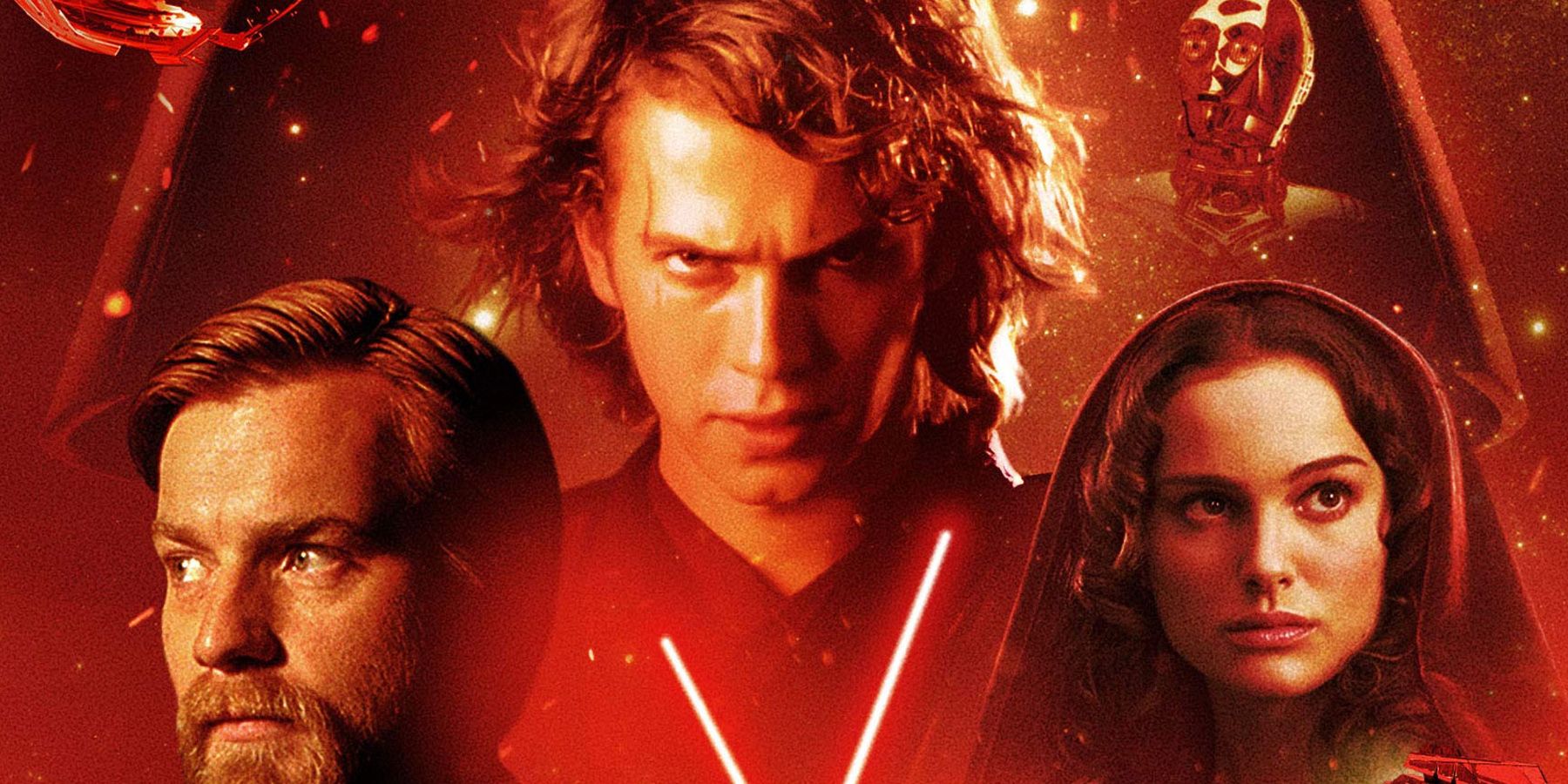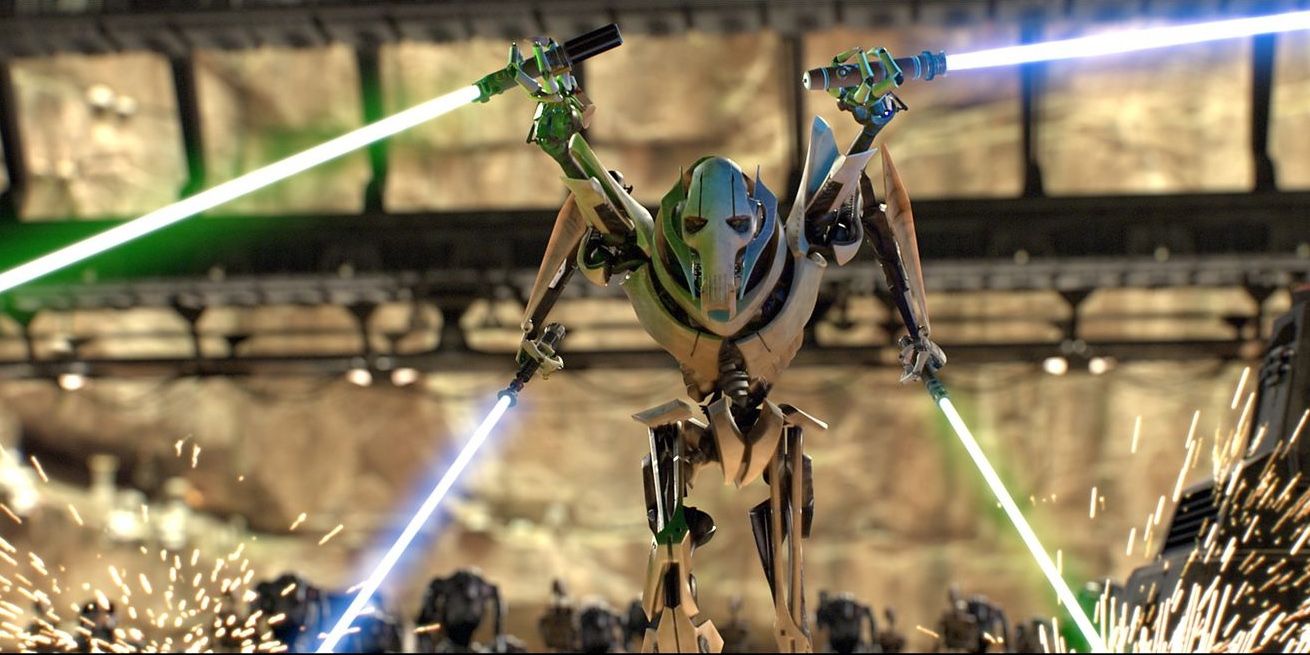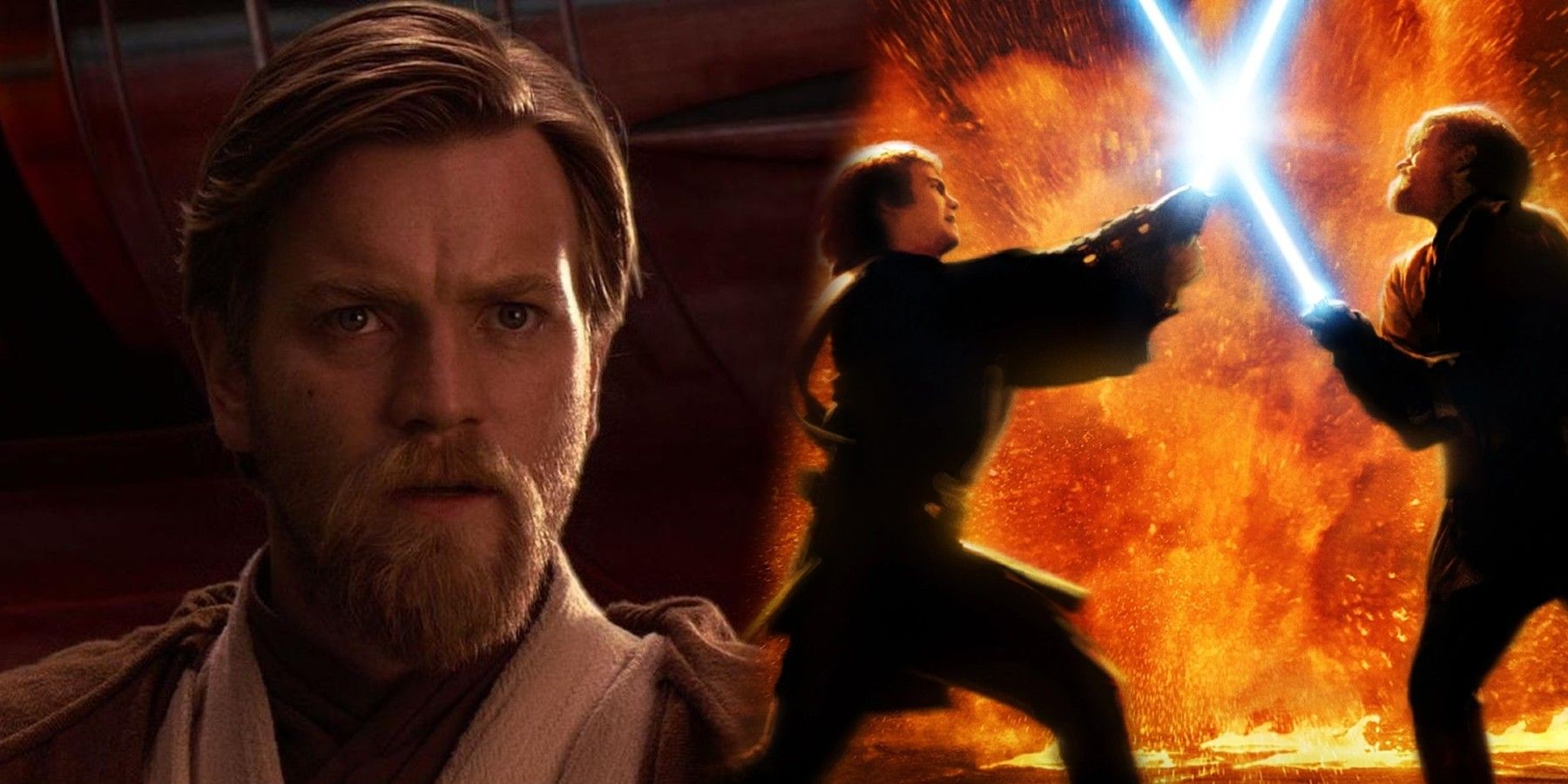It has been almost two decades since Revenge of the Sith concluded the Star Wars prequel trilogy, yet the movies that catapulted the franchise into the twenty-first century remain a subject of frequent debate. With each new installment of the sequel trilogy, the prequels were dragged out and reexamined, their flaws dissected with excruciating rigor. While there is plenty to criticize in the prequels, much more of the criticism relies on misreading of the original trilogy, which, while entertaining, was hardly a cinematic masterpiece. The prequels, on the whole, capture some of the lively banter and thrilling space magic that made the original trilogy so entertaining. However, there is one notable exception: Revenge of the Sith.
Despite being produced across decades by a variety of creative teams, all nine Star Wars movies that comprise the Skywalker Saga share some basic traits. Regardless of plot or production, a Star Wars movie will contain lightsaber battles, intragalactic politicking, and imaginative alien worlds, all intercut generously with quippy dialogue and meditations on heroism. The best Star Wars movies weave these many elements together without leaning too heavily on any one of them. A New Hope, for example, is the quintessential Star Wars movie because it never gets too serious and never lingers too long on one specific plot point. The Phantom Menace, on the other hand, was never taken very seriously because it was not a very serious movie. It overbalanced too much toward the lighthearted, veering into downright silliness.
Revenge of the Sith, meanwhile, goes too far in the other direction, slogging laboriously through Anakin’s long-anticipated descent with the whining reluctance of a young man finishing his chores before he can hang out with his friends. Anakin’s plot was not so much foreshadowed as directly exposited, yet viewers were still excited to see his fear become anger and eventually lead to suffering. Darth Vader’s origin story is the stuff of Greek tragedy, but Greek tragedy survives in the cultural consciousness because journeys toward inevitable downfall are essentially compelling. The writers of Revenge of the Sith, however, seem to have disagreed. They chose to forestall Anakin’s revenge plot until the second half of the movie, compressing Anakin’s downfall by wringing out its narrative logic.
Whether the writers wanted to completely divorce the character of Darth Vader from the character of Anakin, or just spend more time showing Anakin and Obi-Wan as the buddy cops of ancient space, the choice was a misguided one. Severing the evil of Darth Vader from the good intentions of Anakin undermines the poignance of Darth Vader’s ultimate redemption, an epilogue so satisfying that it justifies the existence of the prequels in the first place. Devoting more screen time to the fraternal relationship between Anakin and Obi-Wan has less impact on the story of the Skywalker Saga; it is simply unnecessary here. Their relationship had already been established adequately by Attack of the Clones, and the events of The Clone Wars were already canon for anyone who cared enough to explore the extended Star Wars universe (until The Clone Wars further canonized it into Star Wars’ cinematic universe).
What viewers see instead in Revenge of the Sith is a flimsily-constructed version of a young zealot falling prey to the thrall of a false prophet. It happens in a distinct moment, which convolutes Anakin’s commitment to the Emperor’s lies with his desire to save Padme — not subtly, but explicitly. The moment appears to further instigate an overhaul of Anakin’s entire personality. The constant contradictions of the Jedi apprentice are immediately replaced by unquestioning obedience from the Sith apprentice. Never minding that he is being given contradictory information from the Emperor, Anakin hastens to execute — literally.
The broader execution montage that follows is one of mixed horror and restraint, as very few actual deaths are shown on camera. Yet grisly implication is more than enough to convey Anakin’s utter depravity in the infamous slaughter of the Younglings (who seem to have been chosen for maximum cuteness). Anakin may believe that he is doing what he must in order to save Padme’s life, but his calculation in that scene would make even The Trolley Problem blush.
On their own, these plot points are, without a doubt, a bummer. However, good writing would at least have made them a better, more compelling bummer. The final confrontation between Anakin and Obi-Wan should have brought viewers to tears, for Anakin’s downfall is Obi-Wan’s failure, and he must bear that heartbreak personally. Instead, his disappointment is delivered alongside dialogue that borders on ridiculous, undercutting the pathos of the scene.
The same issue mars Padme’s tragic deat— not while giving birth or (perhaps more realistically) at the hand of her own murderous husband, but from a sheer lack of will to live. This decision by the writers is particularly baffling, as her death would have been no less Anakin’s fault had her distress over the situation led to fatal childbirth complications (or if he had killed her outright, even accidentally). As it stands, there is simply no excuse for the feeble conclusion of Padme’s story.
Revenge of the Sith is the worst prequel. In writing and production terms, it is no worse than either of the other bad prequels, but it distinguishes itself with one irredeemable flaw: it takes itself too seriously. The other prequels echo the originals as lighthearted space romps, complete with outlandish characters and eye-roll-inducing puns. Revenge of the Sith sets a darker tone, one that it ultimately cannot live up to. Had the writers simply embraced the tragedy of Anakin’s story, they might have succeeded in telling a compelling story (à la Rogue One). Instead, they cobbled it together with other Star Wars tropes, seemingly at random, creating a Frankenstein’s monster of erratic movement and empty speech. Without the depth and weight of human complexity, it can only lumber aimlessly toward its inevitable conclusion, a disappointment to all.



